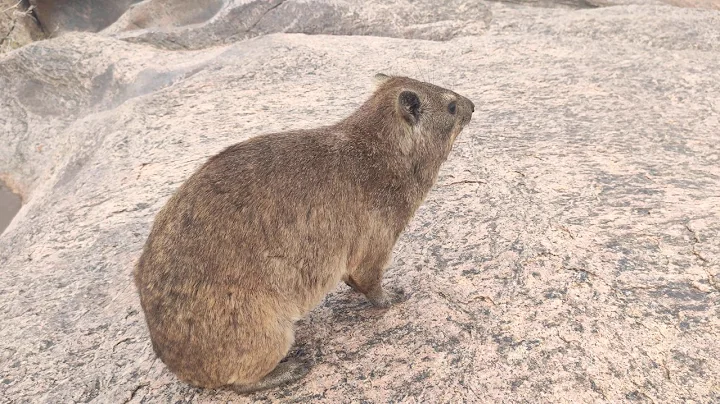
Tan Eggs

Please reply here if you would like to be a moderator. I don't expect it to be too much work, and it should be perfect for someone who hasn't been a moderator before.
You can also help get the community off the ground by foraging for content and sharing cool things you find related to tan eggs (articles, photos, images etc.)
I hope they make it. They are darn cute.

And if nothing else, cuteness helps.
And, of course, they are super cute!

I'm a dad, and I got jokes. Have a great day!
- • 100%
Mini-Eggs

Main photo, Rock Hyrax (Procavia capensis) Pups by Ian White
Fun fact!!- I was inspired to hunt out my sample of Hyraceum which is a tincture of hyrax urine (a jelly like substance which is deposited in communal 'latrines' in rock clefts or caves)
Chonky Egg...
[!](https://lemmy.ml/pictrs/image/a6fb7273-e325-49bc-9963-c25b910bcb1d.png)
Hyrax with Two Babies, by Eric Kilby
The latrines used by the hyrax colonies can be over a thousand years old and have many layers, the oldest layers dry out and fossilize (apparently this is where my sample originates and the urine could have deposited up to 10,000 years ago!)
[!](https://lemmy.ml/pictrs/image/babd6666-b012-4132-a224-abd5b5795dbf.jpeg)
Harvesting fossilized Hyrax piss!
Now my sample was bought maybe 10 years ago and has aged really well. First off it doesn't smell like piss. It is rich and leathery- definitely of animal origin. It's actually very nice, and quite sensual, very old world and not a scent note that you'd find in modern 'clean' perfumes.....
Derpy Egg...
[!](https://lemmy.ml/pictrs/image/43cf8553-fbfb-4c06-8139-569edfb78d6c.png)
Hyrax eating flowers, by buddyspotz
....well there you go folks! I shall enjoy my Friday evening wearing Hyrax piss (and probably the rest of the weekend as it will most likely linger in my pores after several washes)
Egg...
Photo by IN CHERL KIM

Image source: https://www.instagram.com/outdoorskie/p/C8peCNRvTfO/
More about the animal: https://en.wikipedia.org/wiki/Viscacha

Why not start the month, right? I don't even know you, but I believe in you!

Greetings fellow internet friends! I'm DaMonsterKnees, and the very generous Otter has invited me here to take part in the building of this great community, for which I am very grateful. I have been on this site since the *eddit API fiasco, and I can say with certainty, I couldn't be happier. Lemmy is a great many things, but perhaps most relevant to this post, is that it only gets better the more you take part in it. That's why I'm here. I'll be doing my best to contribute to the conversation and this community. I want to share and learn and spread joy thanks to these sweet creatures. With this in mind, I welcome you all to enjoy and find only positivity here. Thanks again, and I look forward to getting to know all of you. And, Happy Halloween!

Name:
> The name Dassie Rat is derived from the Afrikaans word for a hyrax; “dassie”, and is a rather apt name as Rock Hyrax co-habit the same rocky outcrops that the Dassie Rats enjoy, and superficially, a Dassie Rat resembles a young hyrax, that is until its long fluffy tail is spotted! The Dassie Rat’s alternative name is the Noki.
Fun Facts:
> Dassie Rats are well known for their ability to wedge themselves into extremely narrow crevasses from which they are almost impossible to extract. They have evolved narrow, flattened skulls and very flexible ribs to master this talent. Female Dassie Rats even have teats on the sides of their torso, rather than underneath, so that their young can nurse in the very confined and narrow spaces in which they den.
Sources:
-
https://www.rockjumperbirding.com/the-dassie-rat-an-unique-rodent-by-adam-riley/
-
https://en.wikipedia.org/wiki/Dassie_rat
---
You can also enjoy this picture of a Hyrax, which I originally got from Wikimedia Commons for this post since it was listed as a "South African Dassie", before investigating further since it did not look optimized for narrow spaces...
the page: https://commons.wikimedia.org/wiki/File:South_African_Dassie.jpg
-

They resemble rabbits due to convergent evolution
> Viscacha or vizcacha (UK: /vɪˈskætʃə/, US: /vɪˈskɑːtʃə/) are rodents of two genera (Lagidium and Lagostomus) in the family Chinchillidae. They are native to South America and convergently resemble rabbits
https://en.wikipedia.org/wiki/Viscacha
> The data comes from Cascades Pika Watch, a program of the Oregon Zoo that began in 2018 after the Eagle Creek Fire destroyed much of the pika’s habitat. > > Every summer, volunteers now go out into the field to watch and listen for pikas at specific locations. They then upload their data online for biologists to better track the population. > > Pikas typically live on mountains at elevations above 6,000 feet throughout the western United States. But the new data observed a low-elevation population living in the Gorge, just a half-hour drive from Portland. > > According to the zoo, last year’s volunteers spotted pikas at two-thirds of the surveyed sites. But this year, the number was even higher. They added 150 volunteers who submitted 558 surveys from 84 locations throughout the Gorge this year. > > “Each season, we’re getting closer to the pre-fire population numbers,” said Dr. Johanna Varner, with the Cascades Pika Watch program. “This is great news for everyone monitoring the Gorge pika population.”

YouTube Video
Click to view this content.




